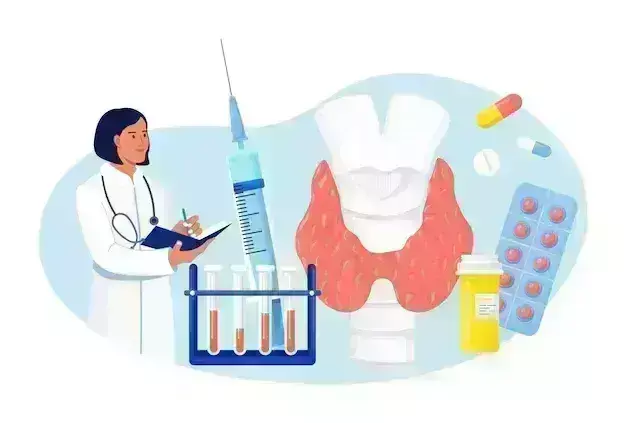- Home
- Medical news & Guidelines
- Anesthesiology
- Cardiology and CTVS
- Critical Care
- Dentistry
- Dermatology
- Diabetes and Endocrinology
- ENT
- Gastroenterology
- Medicine
- Nephrology
- Neurology
- Obstretics-Gynaecology
- Oncology
- Ophthalmology
- Orthopaedics
- Pediatrics-Neonatology
- Psychiatry
- Pulmonology
- Radiology
- Surgery
- Urology
- Laboratory Medicine
- Diet
- Nursing
- Paramedical
- Physiotherapy
- Health news
- Fact Check
- Bone Health Fact Check
- Brain Health Fact Check
- Cancer Related Fact Check
- Child Care Fact Check
- Dental and oral health fact check
- Diabetes and metabolic health fact check
- Diet and Nutrition Fact Check
- Eye and ENT Care Fact Check
- Fitness fact check
- Gut health fact check
- Heart health fact check
- Kidney health fact check
- Medical education fact check
- Men's health fact check
- Respiratory fact check
- Skin and hair care fact check
- Vaccine and Immunization fact check
- Women's health fact check
- AYUSH
- State News
- Andaman and Nicobar Islands
- Andhra Pradesh
- Arunachal Pradesh
- Assam
- Bihar
- Chandigarh
- Chattisgarh
- Dadra and Nagar Haveli
- Daman and Diu
- Delhi
- Goa
- Gujarat
- Haryana
- Himachal Pradesh
- Jammu & Kashmir
- Jharkhand
- Karnataka
- Kerala
- Ladakh
- Lakshadweep
- Madhya Pradesh
- Maharashtra
- Manipur
- Meghalaya
- Mizoram
- Nagaland
- Odisha
- Puducherry
- Punjab
- Rajasthan
- Sikkim
- Tamil Nadu
- Telangana
- Tripura
- Uttar Pradesh
- Uttrakhand
- West Bengal
- Medical Education
- Industry
Patients with low-Risk Thyroid Cancer don't benefit with RadioIodine

After thyroidectomy, radioiodine (iodine-131) is generally administered both to ablate residual normal thyroid tissue and to treat persistent disease. However, in a recent study, researchers found that follow-up without the use of radioiodine after thyroidectomy was non-inferior to the administration of 1.1 GBq of radioiodine after the administration of recombinant human thyrotropin. The study findings were published in The New England Journal of Medicine on March 10, 2022.
There is a consensus to avoid radioiodine administration in patients with a unifocal microcarcinoma (≤10 mm in diameter), but the benefits of radioiodine administration in other patients with low-risk thyroid cancer remain controversial. Therefore, Dr Sophie Leboulleux and her team conducted a study to assess whether no radioiodine therapy was non-inferior to radioiodine therapy with respect to the absence of a composite endpoint that included functional, structural, and biologic abnormalities at 3 years.
In this prospective, randomized, phase 3 Essai Stimulation Ablation 2 (ESTIMABL2) trial, the researchers assigned patients with low-risk differentiated thyroid cancer who were undergoing thyroidectomy to receive ablation with postoperative administration of radioiodine (1.1 GBq) after injections of recombinant human thyrotropin (radioiodine group; n = 363) or to receive no postoperative radioiodine (no-radioiodine group; n = 367). They determined noninferiority as a between-group difference of less than 5 percentage points in the percentage of patients who did not have events. They also assessed the prognostic factors for events and molecular characterization.
Key findings of the study:
- After 3 years of follow-up, the researchers found that the percentage of patients without an event was 95.6% in the no-radioiodine group and 95.9% in the radioiodine group with a difference of −0.3 percentage points, a result that met the noninferiority criteria.
- They reported structural or functional abnormalities in 8 patients and biologic abnormalities in 23 patients with 25 events.
- They noted that the events were more frequent in patients with a postoperative serum thyroglobulin level of more than 1 ng per millilitre during thyroid hormone treatment.
- They also noted that the molecular alterations were similar in patients with or without an event and reported no treatment-related adverse events.
The authors concluded, "In patients with low-risk thyroid cancer undergoing thyroidectomy, a follow-up strategy that did not involve the use of radioiodine was non-inferior to an ablation strategy with radioiodine regarding the occurrence of functional, structural, and biologic events at 3 years".
For further information:
Keywords: low-risk thyroid cancer, thyroidectomy, follow-up strategy, radioiodine, thyroid disorder, ESTIMABL2 trial, unifocal microcarcinoma, noninferiority study, New England Journal of Medicine
Medical Dialogues Bureau consists of a team of passionate medical/scientific writers, led by doctors and healthcare researchers. Our team efforts to bring you updated and timely news about the important happenings of the medical and healthcare sector. Our editorial team can be reached at editorial@medicaldialogues.in.
Dr Kamal Kant Kohli-MBBS, DTCD- a chest specialist with more than 30 years of practice and a flair for writing clinical articles, Dr Kamal Kant Kohli joined Medical Dialogues as a Chief Editor of Medical News. Besides writing articles, as an editor, he proofreads and verifies all the medical content published on Medical Dialogues including those coming from journals, studies,medical conferences,guidelines etc. Email: drkohli@medicaldialogues.in. Contact no. 011-43720751


